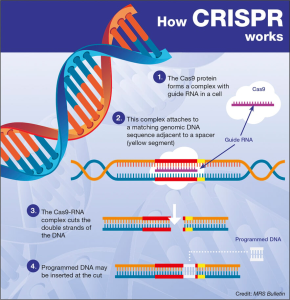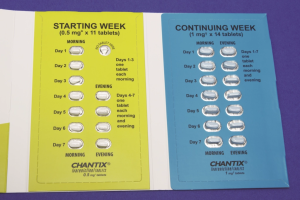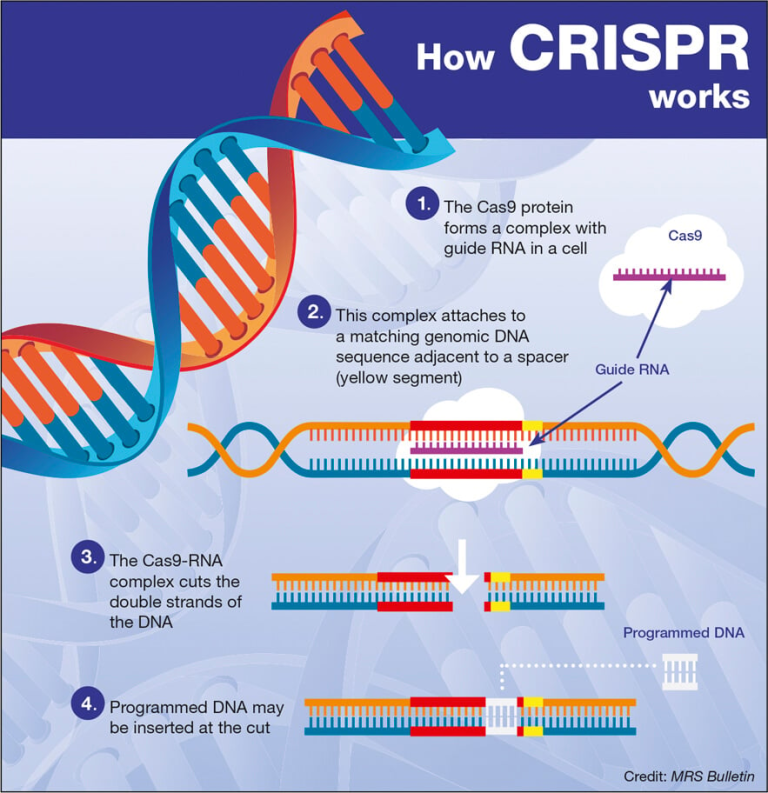Genetic disorders treated before birth represent a groundbreaking frontier in prenatal care, reshaping how we understand and manage fetal health. According to recent research, nearly 300 genetic disorders are now recognized as treatable during pregnancy or shortly after birth, paving the way for innovative approaches to health outcomes in prenatal care. By utilizing advanced techniques like genomic sequencing for prenatal diagnosis, healthcare providers can identify treatable fetal conditions, enabling early intervention genetic disorders that significantly improve prognosis. These developments not only empower parents with knowledge but also position medical teams to act decisively, reducing the risk of morbidity associated with untreated conditions. As we delve deeper into these actionable insights, the possibilities for enhancing fetal health continue to expand.
Prenatal treatment options for hereditary conditions are evolving, allowing expecting families to proactively manage their baby’s health before birth. Early detection of genetic anomalies, often referred to as in-utero therapies or prenatal interventions, offers an unprecedented opportunity for families to address potential health issues right from the start. This proactive approach encompasses a wide range of genetic disorders that can be diagnosed through advanced testing methods, such as non-invasive prenatal testing and ultrasonography. By understanding the implications of these findings, parents can engage in informed decision-making, laying the groundwork for enhanced health outcomes for their child. As advancements in genomic medicine progress, so too does the promise of reducing the impact of genetic disorders before childbirth.
Understanding Genetic Disorders Treated Before Birth
Genetic disorders treated before birth represent a burgeoning field within prenatal care, allowing healthcare providers to intervene during pregnancy. With advancements in genomic sequencing, nearly 300 genetic conditions have been identified that can be addressed either in utero or shortly after birth. This proactive approach to managing treatable fetal conditions not only enhances the quality of care for expectant mothers but also significantly improves health outcomes for newborns affected by serious genetic disorders.
Timely detection of these genetic disorders enables healthcare professionals to provide targeted prenatal care, potentially reducing morbidity and mortality associated with untreated conditions. The ability to intervene before birth creates opportunities for families to make informed decisions and to access therapies that may alter the course of a genetic disorder, leading to better long-term health outcomes for their children.
The Role of Prenatal Care in Identifying Treatable Fetal Conditions
Prenatal care is crucial in the early identification of genetic disorders that may be treatable before birth. Through advanced diagnostic techniques such as genomic sequencing and ultrasound exams, healthcare providers can ascertain fetal health and identify specific conditions that warrant intervention. This directed approach positions prenatal care as a vital component of maternal health, ensuring that parents have access to the most up-to-date information regarding treatable fetal findings.
The integration of genetic screenings into routine prenatal protocols facilitates early intervention and opens a pathway for families to manage potential health issues before they manifest. By emphasizing the importance of early detection, healthcare providers can significantly enhance the outcomes of pregnancies affected by genetic disorders, empowering families with options that were previously unavailable.
Ethical Considerations in Managing Genetic Disorders During Pregnancy
As the landscape of prenatal care evolves with the identification of genetic disorders that can be treated before birth, ethical considerations become increasingly significant. Parents may face overwhelming information about possible genetic conditions and treatments, raising concerns about informed consent and the implications of various choices. Healthcare providers must navigate these complexities thoughtfully to ensure that families feel supported and understood throughout the prenatal journey.
Engaging a multidisciplinary team, including medical geneticists, obstetricians, and ethicists, is essential in addressing these ethical challenges. By providing comprehensive counseling and clear guidance, the healthcare team can help parents make informed decisions that are aligned with their values and preferences regarding the management of genetic disorders, while minimizing anxiety associated with uncertain outcomes.
Genomic Sequencing’s Impact on Prenatal Diagnosis
Genomic sequencing is revolutionizing the way healthcare providers diagnose genetic disorders during pregnancy. While traditional formats of prenatal testing have focused on high-risk indicators, genomic sequencing equips practitioners with the ability to detect a wider array of conditions with greater accuracy, especially when combined with family history assessments. This advanced technology is instrumental in identifying genetic anomalies that signature treatments can address even before a baby is born.
Moreover, the ability to uncover incidental findings through genomic sequencing can notify parents about treatable fetal conditions that they may not have suspected. This underlines the integral role of genomic technologies in enhancing prenatal care, ensuring families are equipped with knowledge that facilitates timely interventions and improves health outcomes for their child.
Navigating Pregnancy with Knowledge of Treatable Genetic Disorders
As expectant parents become aware of the tangible benefits of genetic testing and genomic screening, navigating pregnancy can transform into a more empowering experience. Understanding that numerous genetic disorders are actionable allows families access to treatments that can commence as early as during pregnancy or immediately post-delivery. This heavy knowledge base cultivates an environment where informed decisions can significantly improve a child’s prospects for health and well-being.
The emotional aspect of navigating potential genetic disorders is equally important, as families may feel anxious about the information surrounding treatable fetal conditions. By fostering an open dialogue between healthcare providers and parents, medical teams can reduce feelings of overwhelm, ensuring that families approach their pregnancy with confidence and clarity about their options.
Improving Health Outcomes Through Early Interventions
Early intervention is pivotal for enhancing health outcomes for newborns diagnosed with genetic disorders. With the emergence of a ‘treatable fetal findings list,’ families can explore available treatment options during pregnancy, potentially mitigating the severity of certain conditions. Prompt action can facilitate better management strategies that optimize the well-being of the child from the very beginning.
Furthermore, the notion of early intervention encourages a holistic framework where parents are actively involved in the health narrative of their fetus. This collaborative approach not only aids in the identification and management of treatable genetic disorders but also builds a support system around the family, emphasizing the importance of informed and proactive prenatal care.
The Future of Prenatal Care: Expanding Options for Families
The ongoing research into treatable genetic disorders promises a future where prenatal care evolves into a more comprehensive service. By collating data on treatable fetal conditions, healthcare providers can present families with a greater array of options that cater to their needs and preferences. This proactive stance not only enhances clinical practice but also encourages a culture of awareness surrounding genetic health.
As institutions and research teams continue to work towards refining this ‘treatable fetal findings list’, it is vital for medical professionals to maintain open lines of communication with families. Doing so will ensure that patients feel equipped to navigate the complexities of their genetic health, paving the way for successful outcomes and informed decisions.
Challenges in Implementing New Findings into Clinical Practice
While the identification of treatable genetic disorders before birth represents a significant leap forward, there are notable challenges in integrating these findings into clinical practice. Resistance to change, concerns over diagnostic overload, and the potential for ethical dilemmas are just a few hurdles that healthcare providers may encounter. Training and resources are essential to prepare medical teams to effectively utilize these new protocols and address patient concerns.
Moreover, as genetic testing becomes more prevalent, the importance of ensuring equitable access to these innovations cannot be overstated. Families from diverse backgrounds must be considered in the distribution of genetic health information and the implementation of early intervention strategies. Tackling these challenges will ensure that the benefits of identifying genetic disorders treated before birth are accessible to all.
The Role of Education in Prenatal Genetic Counseling
Education plays a critical role in prenatal genetic counseling, particularly as knowledge surrounding treatable fetal conditions expands. Healthcare providers must cultivate an environment that prioritizes informed consent and clear communication. As more families become interested in exploring genetic testing options, it becomes paramount that they receive personalized education tailored to their unique circumstances.
By fostering effective communication strategies, medical professionals can help demystify the complexities of genetic disorders and empower families to become active participants in their prenatal care. The combination of well-informed healthcare teams and educated parents yields better health outcomes, fostering a supportive ecosystem that embraces the advancements made in prenatal genetic testing.
Collaboration Among Healthcare Professionals and Genetic Experts
Collaboration is essential in the realm of prenatal genetic care, particularly in managing genetic disorders that can be treated before birth. Medical geneticists, obstetricians, and other healthcare providers must work together to develop a cohesive approach to prenatal interventions. This teamwork cultivates a comprehensive understanding of the patient’s situation, ensuring that families receive well-rounded care.
Interdisciplinary collaboration can significantly enhance the decision-making process for parents, providing them with multiple perspectives about potential treatment options. By encouraging a synergistic approach to managing genetic disorders, healthcare teams can maximize the benefits derived from genomic findings, ultimately improving outcomes for families navigating this new frontier in prenatal care.
Frequently Asked Questions
What are genetic disorders treated before birth?
Genetic disorders treated before birth refer to various treatable fetal conditions that can be diagnosed and managed during pregnancy or shortly after birth. These conditions may include genetic anomalies identified through advanced genomic sequencing prenatal diagnosis, allowing for early intervention that can significantly improve health outcomes prenatal care.
How can prenatal care help in addressing genetic disorders?
Prenatal care plays a crucial role in identifying genetic disorders through routine screenings and advanced genomic sequencing. These early assessments can lead to actionable insights, enabling healthcare providers to execute early interventions or treatments that improve health outcomes for both the fetus and newborn.
What is genomic sequencing in prenatal diagnosis?
Genomic sequencing prenatal diagnosis involves analyzing the fetus’s genetic material to identify specific conditions that may pose health risks. This technology is vital for detecting treatable fetal conditions, guiding timely intervention strategies to enhance the overall health outcomes of affected newborns.
Why is early intervention important for genetic disorders?
Early intervention for genetic disorders is critical because it can reduce the risk of morbidity and mortality associated with certain conditions. By identifying treatable fetal conditions before birth, healthcare providers can implement management strategies that may change the natural history of the disease, improving the long-term health of the child.
What challenges do genetic disorders treated before birth face?
Despite the promising advancements in treating genetic disorders during pregnancy, there are challenges including ethical considerations and the potential overwhelm for patients receiving complex medical information. It’s essential for healthcare teams, including medical geneticists and obstetricians, to support families through these nuances during prenatal care.
Can all genetic disorders be treated before birth?
Not all genetic disorders are treatable before birth. However, recent research has identified nearly 300 genetic conditions that fall into the category of treatable fetal findings. This list continues to grow as advancements in genomic sequencing prenatal diagnosis reveal more opportunities for effective intervention.
What resources are available for families facing genetic disorders during pregnancy?
Families facing genetic disorders during pregnancy can access resources provided by genetic counselors and specialized healthcare teams. These professionals can offer comprehensive support, including guidance on prenatal care genetic disorders, treatment options, and ethical considerations, helping families navigate their choices.
How can I ensure the best outcomes for treatable fetal conditions?
To ensure the best outcomes for treatable fetal conditions, it is crucial to engage in early prenatal care, utilize genomic sequencing for comprehensive screening, and maintain open communication with healthcare providers. This proactive approach supports timely diagnosis and intervention strategies that can significantly influence health outcomes.
| Key Points |
|---|
| A study identifies 296 genetic disorders treatable during pregnancy or in the first week of life. |
| Research from Harvard Medical School, Mass General Brigham, and Duke University School of Medicine. |
| Timely detection can reduce morbidity and mortality, offering opportunities for early intervention. |
| Conditions include treatable fetal disorders such as gastrointestinal issues and heart conditions. |
| Genomic sequencing helps identify genetic issues based on family history and ultrasound findings. |
| Ethical considerations and information overload are challenges for patients and healthcare providers. |
| Improving care requires collaboration among medical geneticists, obstetricians, and ethicists. |
Summary
Genetic disorders treated before birth can significantly impact developmental outcomes for fetuses and newborns. This exciting field emphasizes the importance of early detection and intervention, which can ultimately lead to better health for affected infants. With advancements in genomic sequencing and prenatal testing, healthcare providers can now identify and address treatable genetic conditions, providing families with crucial options during pregnancy. Despite challenges related to information processing and ethical considerations, the potential benefits of prenatal care enhancements are profound, paving the way for improved health interventions and outcomes.









